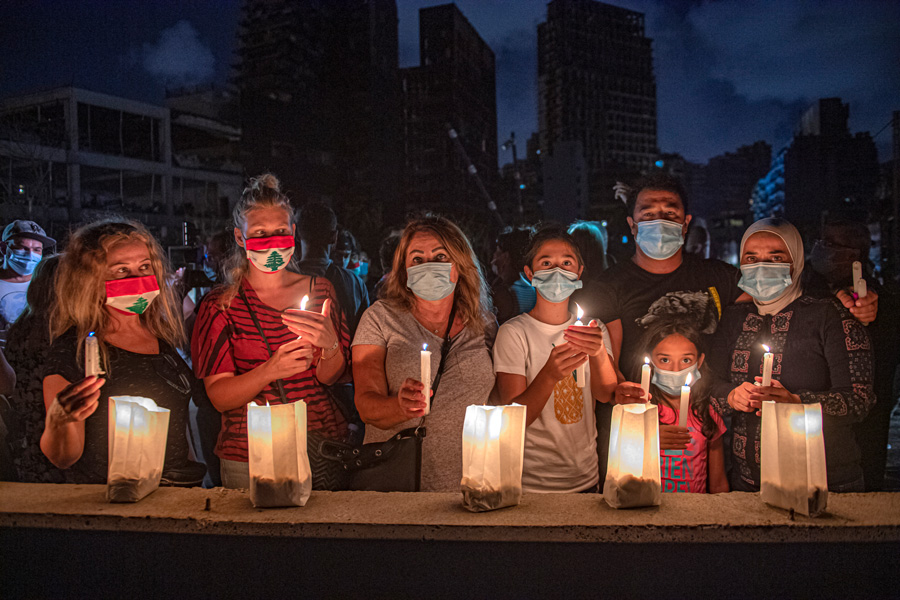In the disaster response and recovery efforts following the tragic 4 August blast in Beirut, volunteers and civil society members rapidly assembled to serve their community through numerous initiatives. Some were derived from pre-existing civil society projects and others were created in response to emergent needs. To document and recognize the significant role of volunteers, three Online Volunteers worked with the UNV field unit in Lebanon to map out community initiatives starting the day following the explosion. They gathered information on more than 200 individual and group initiatives, where volunteers of all ages are taking action.
This photo story and the mapping of volunteer initiatives were made possible with the kind support of Online Volunteers Khawla Nasser AlDeen, Carine Naim and Maya Al Ajam.
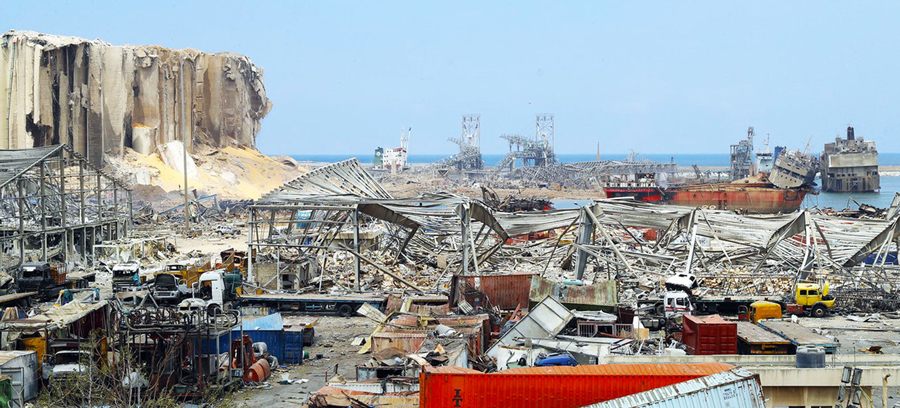
Background
On 4 August 2020, amid dire socio-economic crisis and surge in COVID-19 cases, Beirut witnessed a traumatic explosion of a Port warehouse containing large quantities of ammonium nitrate. The subsequent blast caused widespread structural destruction, with reports of damage more than 20 kilometers from the site, forcing 300,000+ people to become homeless and internally displaced.
As of 25 August, there have been 180+ reported deaths, 6,500+ people injured, and more than a dozen people still reported unreachable or missing. This tragedy caused a devastating impact on the physical and mental wellbeing of the community. Volunteers played a significant role in responding to community needs.
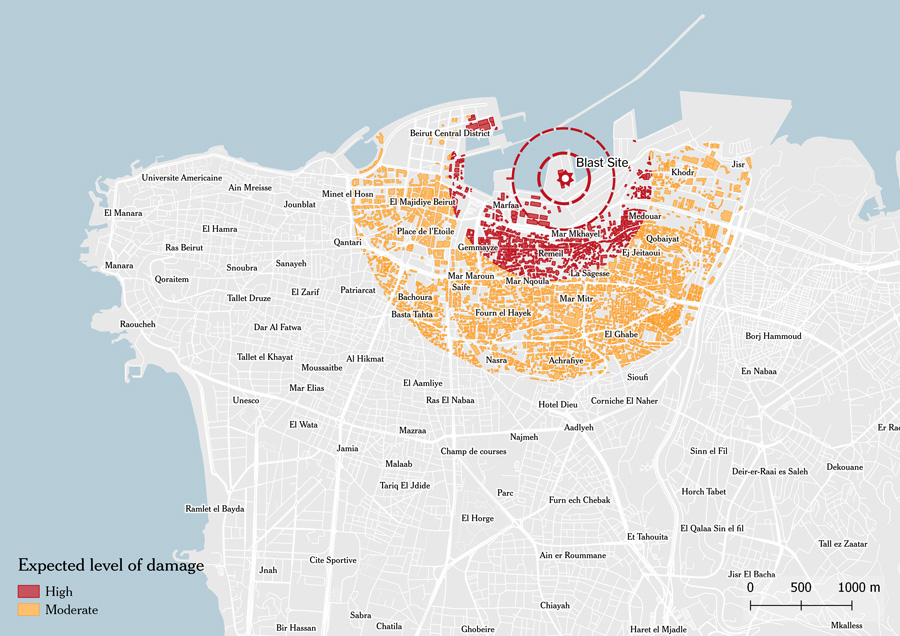
Social Cohesion and Rapid Displacement Response
Driven by their social solidarity values, community members quickly offered their support to those who became displaced in Beirut. While official shelters where being setup, families, hotels and institutions (such as schools and religious institutions) from all over Lebanon rushed to open their doors and offer safe spaces for free. Many also offered free transportation to the housing sites.
The community was involved in search and rescue efforts as well, by rapidly utilizing social media and communication channels to report about missing individuals. With time, initiatives utilized innovative and accessible tools to connect those in need for housing with volunteers, through interactive maps, websites and organized social media pages.
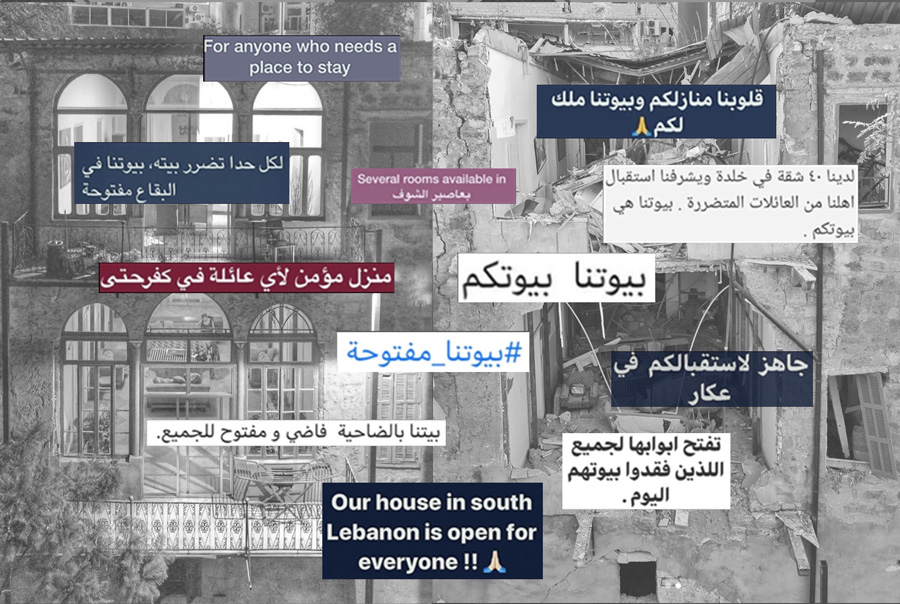
Basic Needs Support and Services
The aftermath of the explosion deepened the risk of food insecurity and intensified financial difficulties from the pre-existing socio-economic crisis in Lebanon. Initiatives are providing basic needs support, by delivering food, water, hygiene kits, clothes, covers, etc. They are supported by generous national and international donors.
Food tents were promptly set up in affected sites. Many women in Beirut and neighboring cities turned their home kitchens to sites for preparing hot meal donations. Online grocery stores and websites for food delivery were set to ease the process of delivery and increase transparency for donors. Mindfully, the initiatives cater for specific group needs by, for example, providing menstrual health hygiene products for girls and women, and care supplies for infants.
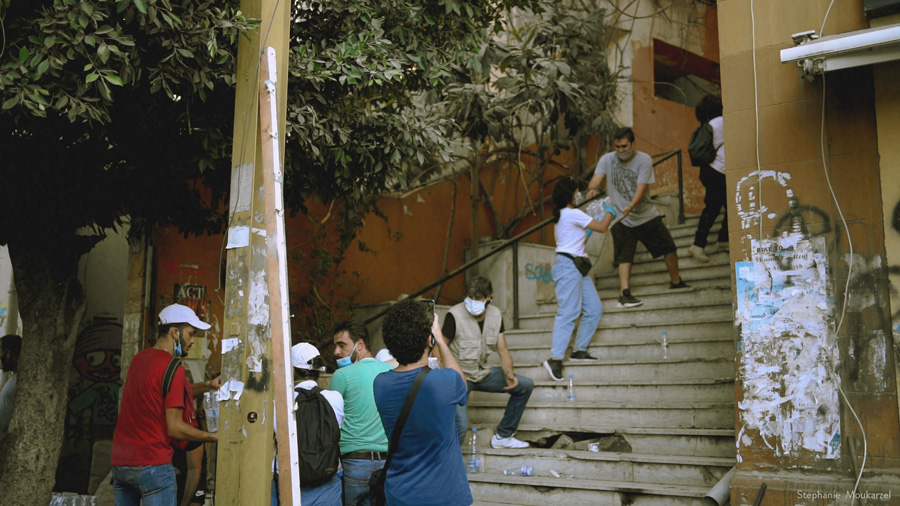
Healthcare and Psychosocial Support
Immediate healthcare assistance was mobilized, mainly led by the Lebanese Red Cross, blood donation centers/clinics, and field hospitals. Medical, nursing, and allied health students rushed to serve as healthcare backup, reducing the burden on overstretched hospitals and clinics.
An inspiring number of mental health initiatives quickly emerged offering healing and coping tools while capitalizing on the social support momentum. Psychosocial support is taking many forms, from Mental Health First-Aid tents, hotlines, free individual and group therapy sessions, and safe spaces for children, to the widely circulated mental health promotion infographics on social media.
Many healthcare experts and practitioners (such as physicians, plastic surgeons, and physical therapists) are volunteering to provide free checkups, treatment, and rehabilitation to those who are injured or live with chronic illnesses.
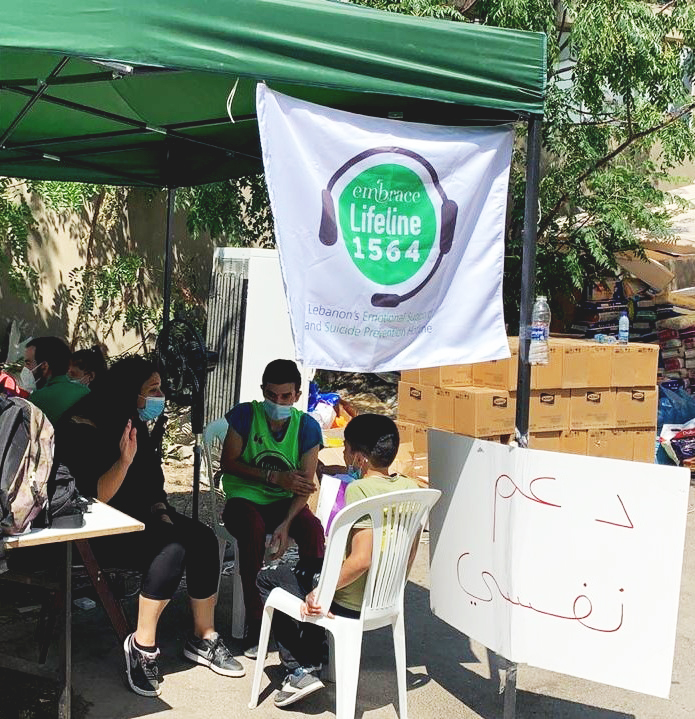
Structural Rehabilitation Support
Driven by the motivation to safely return people to their homes before the beginning of winter, thousands of volunteers initiated structural rehabilitation support efforts, including clearing debris, reparation, and restoration.
Engineers, construction experts, and students rushed to conduct field damage assessments focused on identifying collapsing buildings and health hazards such as gas leaks. Activists from the engineering community are advocating for cultural preservation through identifying and promoting the protection of heritage buildings and establishments.
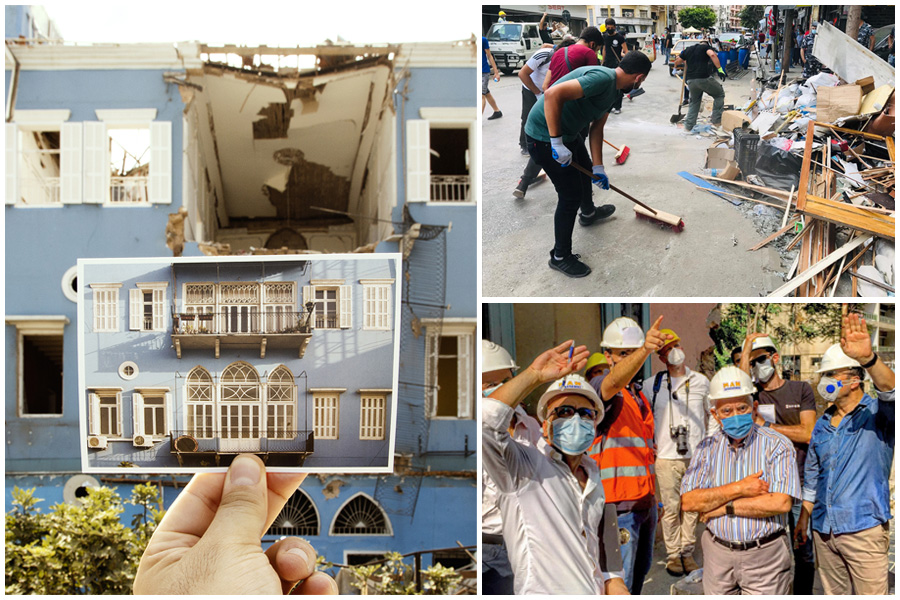
Reconstruction and Recycling
Volunteers in Lebanon and international online volunteers are providing design and mapping services, and legal consultations for tenants free of charge. Many businesses and retailers are extending free or discounted construction and restoration material. Construction workers, including many migrant workers, are assisting by providing physical labor needed for reconstruction. Communities across the country are donating furniture and utensils to aid in restocking homes.
Exhibiting mindfulness and promoting environmental sustainability, many initiatives are resorting to providing green services such as recycling glass, safely handling electronic waste, upcycling material, repurposing damaged furniture.
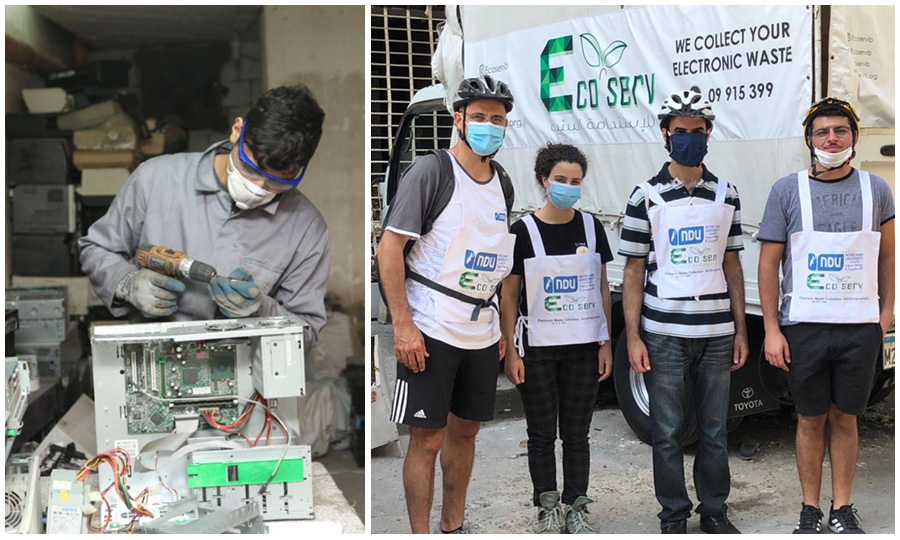
Volunteer Protection and Capacity Building
Significant efforts aim at supporting and organizing volunteer initiatives. National public health experts prioritized the importance of safety, through infographics on occupational hazards, guiding volunteers to practice precautions to minimize injury and COVID-19-related risks. Some initiatives were focused on serving volunteers, offering them transportation, personal protective equipment (masks, helmets, gloves, sunscreen, water), and safety training.
Mental Health First-Aid tents and psychosocial support outlets were made available for first respondents and civil society members to take care of their wellbeing as they serve others. Multiple social media pages, websites, databases, and other online tools were created to serve as a communication channel, to connect people seeking services with relevant initiatives, and to recruit volunteers.
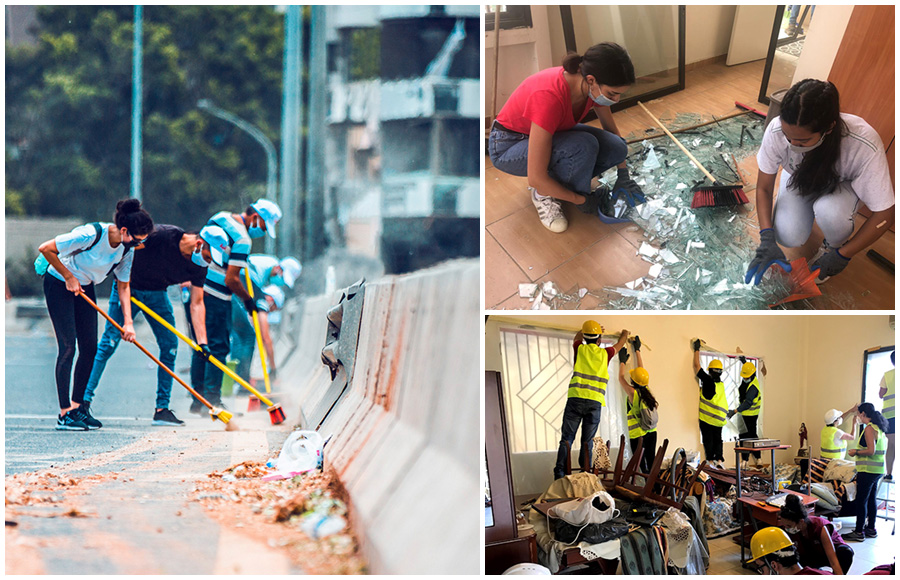
Partnerships
Response partnerships are emerging with time between volunteers, UN entities, syndicates, artists, academic institutes, and national and international organizations. They are displayed through reported support, planning, data sharing, and joint fundraising efforts; with the aim to enhance efficacy and outreach and avoid duplicating efforts.
The mapped initiatives reflect an inspiring spectrum of diversity, innovation, and dedication to community service during this time of hardship. Lebanese and international students, refugees, migrant workers, and members of diverse regions, religious and professional backgrounds rapidly came together in solidarity to offer support. Their significant role calls for the need to acknowledge their continuous efforts, and for the inclusion of volunteers in national emergency response plans as agents for change and service, while fostering coordination, and prioritizing their safety and wellbeing.
